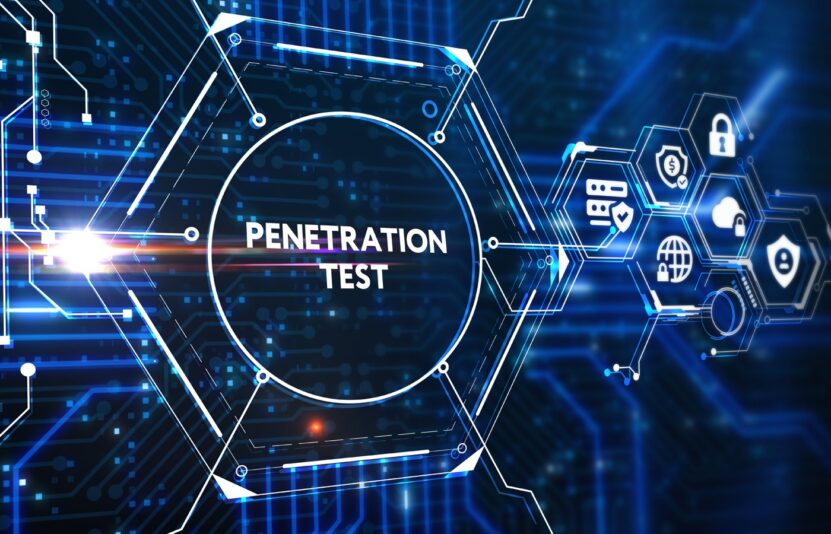As cyber threats become more advanced, companies must take proactive steps to protect their systems.
Penetration testing services are a critical part of a strong cybersecurity strategy.
These services involve ethical hackers attempting to breach your systems, helping you uncover vulnerabilities before malicious actors do.
In 2025, with digital transformation accelerating across industries, businesses are more interconnected than ever before.
This increased reliance on cloud infrastructure, third-party services, and remote work setups has expanded the attack surface, making it even more important to detect weak points early.
Penetration testing isn’t just about finding flaws—it’s about understanding how real-world attackers would exploit them, and how you can stay a step ahead.
The Rise of Cybercrime

2025 has already seen a sharp increase in ransomware attacks, phishing campaigns, and data breaches.
Small and medium-sized businesses are no longer overlooked by attackers. In fact, they’re often targeted due to weaker security postures.
Penetration testing services simulate real-world attacks, giving businesses a realistic view of their security gaps.
The cost of a data breach continues to rise, with damages often running into millions—even for mid-sized organizations.
According to recent industry reports, companies without a regular testing protocol are 3 to 5 times more likely to suffer a successful attack.
Cybercriminals are becoming more organized, using AI-driven tools and automated scripts to locate and exploit vulnerabilities within seconds.
With such speed and sophistication in play, reactive security strategies are no longer sufficient.
Attackers today don’t need months of planning to breach a system—they just need one exposed endpoint, one weak password, or one untrained employee to fall for a phishing email.
Penetration testing identifies these risks in advance, allowing organizations to patch holes before they’re exploited in real-life attacks.
What Do Penetration Testing Services Include?
These services go far beyond simply scanning for software vulnerabilities. Skilled professionals conduct comprehensive tests across web applications, networks, wireless environments, and employee behaviour.
Social engineering is often part of the test to evaluate human weaknesses as well.
In a typical engagement, testers may attempt to bypass firewalls, crack weak credentials, or exploit configuration errors.
They may even simulate insider threats—malicious actors who already have some level of access. This holistic approach is what sets penetration testing apart from automated vulnerability scans.
While automated tools are useful for ongoing monitoring, they often miss logic flaws, privilege escalation paths, and chained exploits that a skilled tester can uncover.
In addition to technical testing, many providers include physical security assessments, where they attempt to access restricted areas, plant rogue devices, or manipulate access control systems.
These comprehensive tests provide a 360-degree view of your organization’s threat landscape.
Benefits of Regular Testing

By hiring penetration testing services on a regular basis, organisations can continuously assess and improve their security.
This not only helps to prevent costly breaches but also ensures compliance with data protection regulations like GDPR and ISO 27001.
These audits can be used as evidence for insurers, investors, and partners to demonstrate that your company takes security seriously.
Regular testing fosters a security-first culture within the organization. It also offers measurable improvements over time, allowing IT teams to track progress and justify security investments to leadership.
Many companies integrate testing results into their risk management and business continuity plans, ensuring that security is not just an IT concern but a company-wide priority.
Furthermore, as regulators increase scrutiny on how data is stored and protected, penetration tests can serve as proof of due diligence.
Whether you’re bidding on government contracts, applying for cybersecurity insurance, or entering a new market, demonstrating that your systems have been tested and hardened can be a powerful business advantage.
Choosing the Right Provider
Not all penetration testing services are created equal. Look for providers with recognised certifications such as CREST, OSCP, or CEH.
They should be able to provide a clear scope, detailed reporting, and post-test support. Remember: the goal is not just to find vulnerabilities, but to help you fix them efficiently.
When selecting a provider, ask about their testing methodology. Are they using industry standards like OWASP or NIST?
Will they tailor their testing to your specific business operations and risk profile? The best firms will work closely with your internal teams, providing clear remediation guidance and even re-testing after fixes are applied.
It’s also worth considering whether the provider offers red teaming or purple teaming services—advanced techniques where testers work either offensively (red) or collaboratively with defenders (purple) to enhance detection and response capabilities.
For businesses with more mature security programs, these services can provide deeper insights into organizational resilience.
Final Thoughts

If you’ve never had a penetration test conducted, or if it’s been over a year since your last one, now is the time to act.
With threats evolving rapidly, penetration testing services are one of the most valuable investments a business can make in its digital future.
Cybersecurity is no longer a luxury—it’s a necessity. In an environment where even a small breach can lead to lost customer trust, regulatory penalties, or operational downtime, the cost of doing nothing is far higher than the cost of proactive testing.
Whether you’re a tech startup, a healthcare provider, or a manufacturing firm, understanding and reducing your risk exposure is essential for long-term success.
In 2025 and beyond, companies that prioritize cybersecurity will stand out—not just for their resilience, but for their trustworthiness in the eyes of clients, partners, and regulators.
Penetration testing services provide the insight and assurance needed to face the digital future with confidence.

